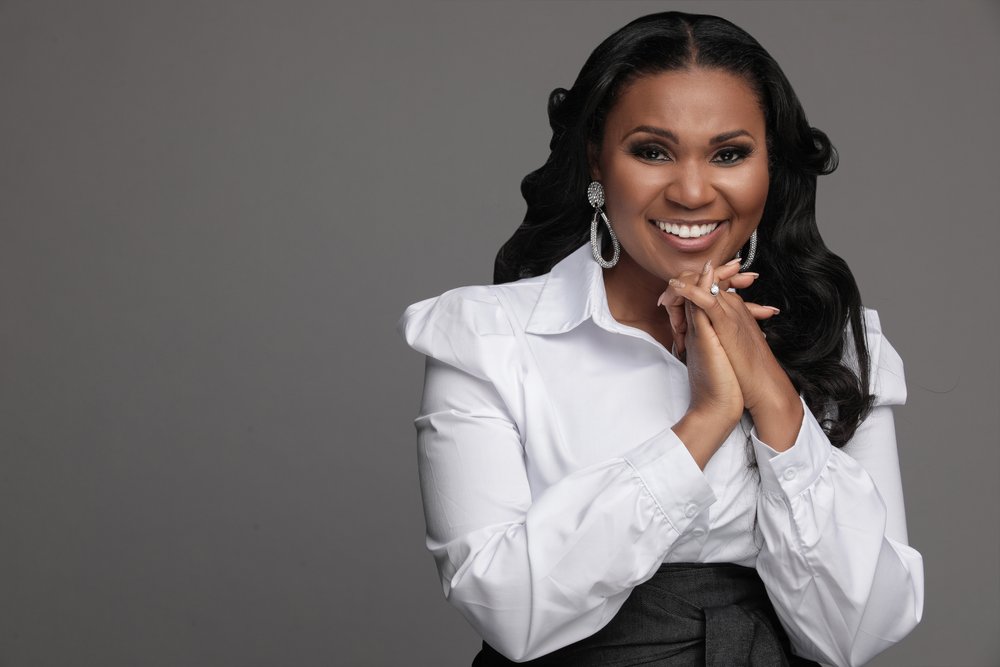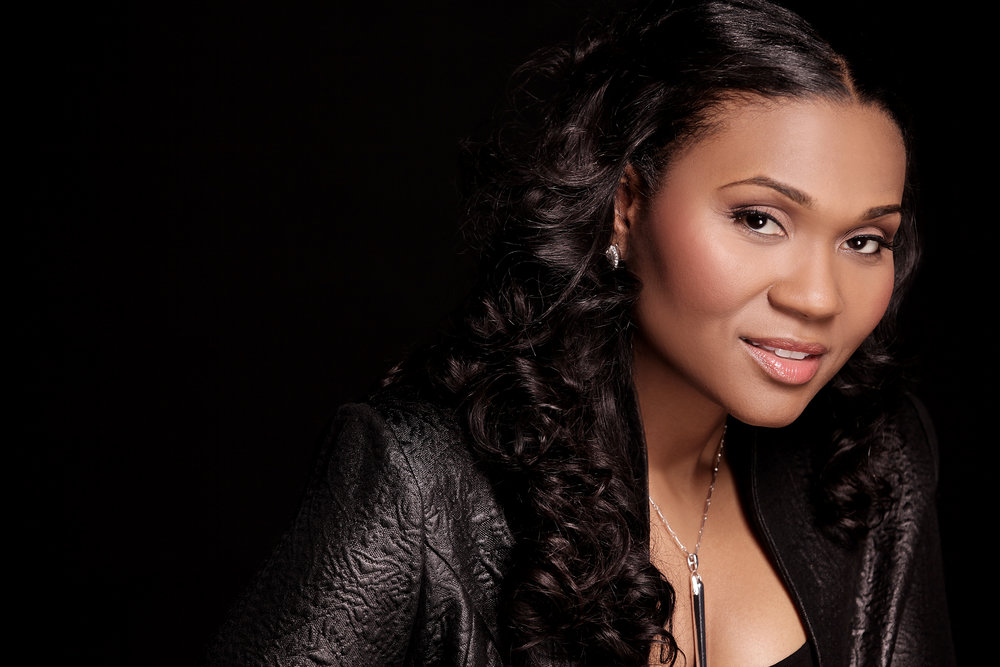Opera Singer Follows Purpose in the Arts and Motherhood

The thought of motherhood admittedly frightened Aundi Moore.
At the time, she had just begun to make a name for herself as one the few Black women opera singers. Work was becoming consistent, and the acclaimed soprano thought revealing her pregnancy would somehow curtail her progress and bring her dream to a screeching halt.
I was afraid of my career falling apart
“I was afraid of my career falling apart,” said Moore, mom to 11-year-old Tyler and 6-year-old Alex.
“In the music world, if they know that you’re pregnant, they won’t hire you,” she continued. “Almost it felt like women singers were being blacklisted, especially for a number of years, because it’s like ‘She’s got a baby now, she won’t have time for this.’”
Moore emphasized that the industry has since softened its approach to expectant mothers, but the landscape wasn’t as understanding of working mothers when she welcomed her first child.
But she made it work. She strapped her eldest son to her back when he was an infant and took him along for the ride. She hired help when she had her second child.
I really wanted to keep me. ‘Keep me’ meant that I got to do my passions.
Aundi Marie Moore on Balancing Motherhood and Opera
What Moore didn’t realize during the daunting transition into motherhood was how it would shape her life and her career, how her new inspiration would open doors for others.
“I wanted to fight against that notion that now that I have a baby, I have to stop living the way I’m accustomed to living. I think that is what drove me more so than anything to keep going,” said Moore, who impressively sells real estate with Washington D.C.’s Barnett Group to supplement her music career. “I do show up on time. I am prepared.
“(Music) just became another space and place to show that women can do this – be mothers and have a performing career.”
Finding Her Purpose
Moore started singing when she was 9-years-old. Her voice teacher was classically trained and knew she was destined for opera. The instructor convinced her mother that if Moore can sing opera, she can sing anything – including, but not limited to, classical, jazz and gospel, which was Moore’s preferred genre.
Still, Moore resisted.
“I tried to quit on a regular basis,” she confessed. “I remember clearly telling her that is not what the Lord has called for me to do and she said ‘Oh yes He did.’ And I said ‘No, Black people don’t sing opera,’ and she said, ‘Yes, we do.’”
Marian Anderson overcame racial prejudice in the 1950s to become the first Black singer to perform at the Metropolitan Opera. Tenor George Shirley, who Moore got to meet early in her career, also helped paved the way for Black classical singers. He was the first Black tenor to have a leading role at the Metropolitan Opera.
One of Moore’s career successes was her appearance as Strawberry Woman in the company’s production of Porgy and Bess.
Although many trailblazers before Moore broke color barriers in opera, only 9.5 percent of opera singers in the United States are Black.
Staying the Course
Moore’s interest in the genre grew when she began traveling to compete. It wasn’t because she was one of the few Black singers winning, it was because she understood her gift was blooming into what would become an award-studded career.

The National Association of Negro Musicians (NAMN) exposed Moore to other Black artists like her. These interactions inspired her to stay the path in spite of the unique challenges she faced as a Black woman opera singer.
Meeting the legendary Shirley during a NAMN conference added to her fire.
If they can do it and endure what they endured, then so can I.
“If they can do it and endure what they endured, then so can I. That’s what made me stick through it,” Moore said. “There were bumps and bruises. One thing George Shirley taught me when I got to college was that even though there are bumps and bruises, don’t let them take your spirit. …He said ‘I wouldn’t let them take my spirit because I knew I was doing this for you, I was opening doors for you, too.’”
Just as the George Shirleys, Jessye Normans and Denyce Graves of the world blazed trails for Moore, she’s doing the same with her children – whether they’re called to music or not.
Sons Alex and Tyler have had a front-row seat to their mother making her own history and finding success in a world where Black folks were formerly excluded.
When she books longer shows, Moore and her husband agree that she must see the boys every two weeks. During concerts, she may be gone up to five days, but that time extends up to six weeks when she’s away performing an opera.
Moore debuted at Carnegie Hall in New York last October. Her next performance is on April 13 as a lead soloist in the Sun, Moon & Star Concert with the Cheyenne Symphony Orchestra.
“Whether I sing in church, whether I sing on major stages – I have to sing, and (my sons) realize that,” said Moore, thankful that she stuck with singing and can now make a living from it. Additionally, her work is inspiring her children to build their own passions.
“I like how my life has bloomed, especially being a mom, because that was not on my radar,” Moore said, reminding working mothers that they can’t do it alone.
“If I wanted to keep me, and I really wanted to keep me. ‘Keep me’ meant that I got to do my passions, I got to sing, I got to be a mom, I got to be a good wife. It was a big deal for me, so I needed that help. That was the big transition for me,” she said.
